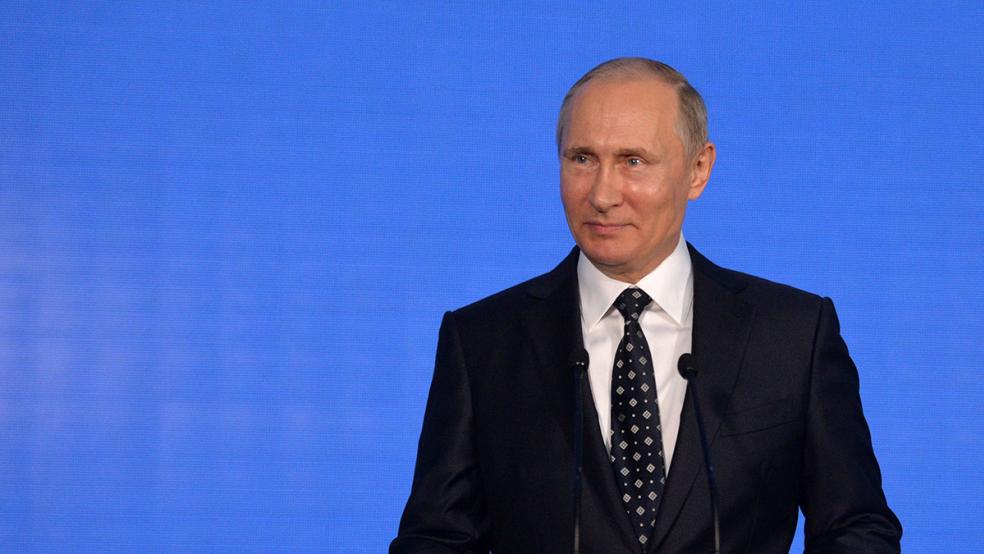High profile Republicans, both in and out of office, are sounding increasingly serious about the need for an investigation that can put the rumors of contact and potential coordination between Donald Trump’s presidential campaign and the Russian government to rest -- or prove them true.
“We need answers,” House Speaker Paul Ryan said on NBC in an interview that aired Tuesday morning. “We need to make sure that nothing happened that shouldn't have happened as we go forward.”
Related: Schumer: Trump’s Address to Congress ‘Less Important than Other Presidents’
“Both the House and the Senate intelligence committees are beginning their investigations right now. We've had one for a while. We're increasing the scope of the investigation,” Ryan said. “We think the intelligence community is the right place to do it.”
Also on Tuesday, former House Speaker and Republican presidential candidate Newt Gingrich called on Trump -- whom he supported during the election -- to “take a lesson from the past” by assigning a respected, independent figure to oversee an investigation.
“Maybe somebody like Michael Mukasey, former attorney general,” Gingrich suggested. “Put them in charge of the whole project, and say, you know, there are questions here, the country has questions, the media has questions, even members of Congress have questions,” Gingrich said.
The comments from Ryan and Gingrich come as part of a growing drumbeat of calls to dig deeper into Trump’s alleged Russian connections from people on both sides of the political aisle. But the story is confusing and has a large cast of characters. For those who haven’t been paying attention, here’s a rundown of the major figures involved.
Who is reportedly being investigated?
Michael Flynn
The retired Army lieutenant general who served, albeit briefly, as President Trump’s national security adviser, is at the heart of the story. He is alleged to have had several conversations with the Russian ambassador to the U.S. in the weeks after Trump was elected but before he took office. It has been alleged that he suggested that Russia not react to sanctions imposed by the Obama administration over apparent interference in the presidential election, because the sanctions might be eased or reversed by Trump. While the conversations themselves may have been legal, Flynn reportedly lied about them to senior White House officials and was subsequently fired.
Related: There’s Good News for Trump Buried in This New Poll
Paul Manafort
An attorney and the one-time head of the Trump campaign, Manafort is well known for his service to dictators and autocrats over the years. He has been tied to Russia through his association with deposed Ukrainian President Viktor Yanukovych. Manafort has denied any contact with Russia during his time with the Trump campaign.
Carter Page
A minor figure in the Trump campaign, Page was mentioned early on as an adviser on foreign policy issues, but took a leave of absence after it was reported that he was under investigation for his contacts with a Russian political figure under U.S. sanctions. A graduate of the U.S. Naval Academy and a former Marine, Page is the founder of Global Energy Capital, an investment firm focused on the oil and gas sector in Russia and Central Asia. Early this year, The New York Times reported that along with Manafort and Trump associate Roger Stone, Page was being investigated as part of the inquiry into the Trump campaign’s Russia ties. Like Manafort, he says that he has done nothing improper.
Roger Stone
A former dirty-tricks specialist for Richard M. Nixon, Stone has been a fringe player in conservative politics for many years, and was an early adviser to Trump. He subsequently left the campaign, but continued to act as an unofficial surrogate. Over the summer, he appeared to have advance knowledge of the release of documents damaging to Democrat Hillary Clinton’s presidential campaign -- documents that U.S. intelligence officials believe were stolen by Russia-sponsored hackers.
Who is doing the investigating?
The Federal Bureau of Investigation
The FBI, with the support of the National Security Agency, the Central Intelligence Agency and the Financial Crimes Enforcement Network at the Treasury Department, is believed to be looking at the ties between the Trump campaign and the Kremlin. While the FBI has made no official comment on the investigation, the White House insists that it has been informed by FBI officials that there is nothing to the allegations. Pressed by the White House, CIA Director Mike Pompeo reportedly called reporters at the Times and The Washington Post to say reports about the investigation were incorrect, but provided no details.
Related: Trump's Military Buildup Makes Even His Generals Nervous
House Intelligence Committee Chairman Devin Nunes
The California congressman in charge of the Intelligence Committee is courting controversy by overseeing an investigation into the Trump campaign, because he himself was deeply involved in it. Nunes this week even suggested that there was really little need to investigate the Trump campaign and said he was actually more interested in finding out who has been leaking information to reporters. Paul Ryan’s talk about the “increased scope” of the committee’s investigation, though, might signal a change in tack.
Senate Intelligence Committee Chairman Richard Burr
Burr, a Republican from North Carolina, also appears to have prejudiced himself somewhat this week by obliging the White House’s request for officials to push back against the idea that the campaign had contact with Russia. Like Pompeo, he called reporters and denied that the stories about the investigation were accurate. Also like Pompeo, he offered no details. Burr has also appeared reluctant to support an aggressive inquiry into the issue by his committee, and reports that he had called reporters to prejudge its results have led many to question his ability to be impartial.





